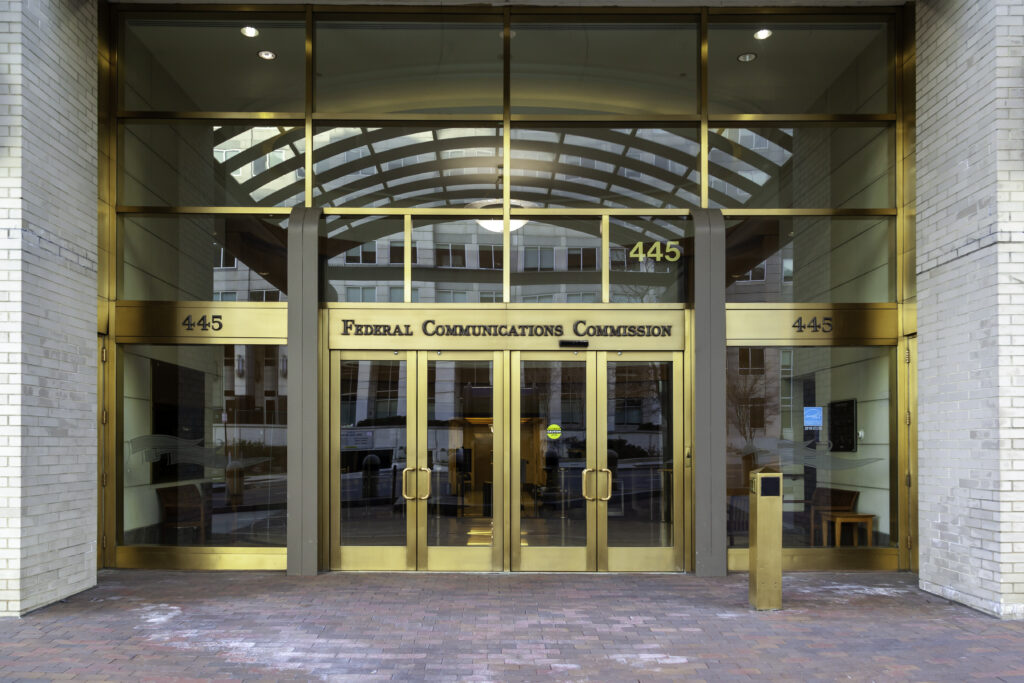"White Label" VoIP partner programs are everywhere.
As advertised, they offer a relatively easy, low-cost way for companies to profit from the growing VoIP market. Companies with an IP business customer base are enticed to grow their business by adding voice to their existing product mix. The wholesale providers can make it sound so easy. They may say they will provide their VoIP resale partners with "all of the tools and support" needed to offer the service, including taking care of the regulatory requirements.
Unfortunately, there are many misconceptions about the regulatory obligations of wholesale and resale participants in these programs. Both should have a clear picture of the regulatory requirements and associated costs so they can make sound decisions about their business strategies based on fact, not fiction. A reseller who mistakenly relies on the wholesale provider to meet its regulatory requirements may find itself facing potentially catastrophic late fees, penalties and fines in the future. And a wholesale provider who builds its business model around these resellers may see that model collapse.
Understanding and complying with the regulatory requirements from the start is not that difficult or costly – failing to do so could be.

Fiction: Interconnected VoIP Service is not regulated.
For those of us who live in the regulatory world, it is surprising that many companies offering interconnected VoIP services don’t think they are subject to any FCC or state regulation. But it seems to be a fairly common fallacy.
The confusion might due to the FCC’s ambiguity in defining interconnected VoIP service. They have not defined it as a “telecommunications service” subject to all the rules applicable to traditional telecom carriers but they also have not decided that it is an “information service” specifically excluded from many of the traditional telecom regulations. As a result, confusion reigns.
Fact: Yes, interconnected VoIP is regulated!
Neither the FCC nor the states subject interconnected VoIP providers to regulation of the rates, terms and conditions of service. But they have extended many of the requirements imposed on traditional telecom carriers to interconnected VoIP service providers. Here are some highlights:
FCC Regulations
2005:
- Interconnected VoIP providers were ordered to supply E911 capabilities to their customers and explain the limitations of those capabilities.
- The FCC decided that the Communications Assistance for Law Enforcement Act (CALEA) applies to interconnected VoIP providers.
2006:
- The FCC ordered interconnected VoIP providers to register using the FCC Form 499-A, obtain a Filer ID and begin collecting and remitting Federal Universal Service Funds (FUSF).
- Following up on its 2005 decision, the FCC ordered interconnected VoIP providers to comply with the system security requirements associated with CALEA, including the filing of a CALEA policy and procedures manual.
2007:
- Interconnected VoIP service providers were ordered to comply with the FCC’s Disability Access and Telecommunications Relay Service (TRS) rules, including making contributions to the federal TRS fund starting in 2008.
- The FCC decided to apply its regulatory fee assessment applicable to Interstate Telephone Service Providers (ITSP) to interconnected VoIP providers.
- The FCC extended Local Number Portability Requirements to interconnected VoIP providers, including the associated funding obligations.
- The FCC extended its Customer Proprietary Network Information (CPNI) rules to interconnected VoIP providers, including the requirement to file an annual CPNI certification.
2008:
- The FCC ordered interconnected VoIP providers to file the Form 477 Data Collection, reporting their retail VoIP subscription locations and counts.
2009:
- The FCC extended notice and filing requirements for discontinuance of service to interconnected VoIP providers, requiring FCC approval for discontinuing service (rules became effective in 2010).
2012: The FCC required interconnected VoIP providers to report service outages that exceed certain thresholds.
State Regulations
State regulators have typically imposed requirements on interconnected VoIP service providers in the form of registrations and fee assessments: Currently:
- 13 states and Puerto Rico require some form of registration for nomadic interconnected VoIP providers (including resellers) and two states require fixed VoIP providers to receive authority from the state regulatory commission;
- DC, Puerto Rico and all but five states require interconnected VoIP providers to contribute to 911 funds;
- 16 states, DC and Puerto Rico require contributions to state USF funds;
- 18 states require contributions to stand-alone state Relay funds.

Fiction: Interconnected VoIP Resellers can rely on their wholesale provider to meet these regulatory obligations.
We hear this from countless wholesale and retail VoIP providers.
The wholesale provider sometimes offers a package deal as part of their white label program that includes satisfying some of the federal and state regulatory obligations, such as payment of USF and TRS fees, on the reseller’s behalf.
The wholesaler may believe that this is the most cost-effective way to satisfy the federal and state regulatory obligations and perhaps views this model as a way to rapidly grow its business. The reseller believes that whatever obligations they might have (if they are even aware of them) are being taken care of by the wholesale carrier.
Unfortunately, both are exposing themselves to significant regulatory and business risk.
Fact: Interconnected VoIP resellers are responsible for satisfying most regulatory obligations independent of their wholesale carrier.
Although there are a few exceptions, in most cases the retail providers of interconnected VoIP services are required to meet the federal and state regulatory obligations outlined above and cannot use their wholesale provider as a surrogate.
For instance, the FCC requires providers of interconnected VoIP services to register and annually file the Form 499A. Based on the revenues reported on that form, they may have to contribute directly to the federal universal service (FUSF) fund and will have to contribute to other federal funds (the telecommunications relay service fund, local number portability fund, etc.) and pay an annual regulatory assessment to the FCC.
The wholesale provider would pay the federal USF for resellers who have insufficient revenues to be direct FUSF contributors and are considered “de minimis” filers by the FCC. However, resellers are still obligated to file a Form 499A and directly pay the TRS, LNP, NANPA and the ITSP FCC fee assessments. And there are no “reseller” exceptions for complying with other FCC obligations such as CALEA, CPNI, discontinuance requirements, and Form 477 filings.
If a company operates as a reseller and not simply as a marketing agent of another provider’s interconnected VoIP services, they are directly responsible for complying with the applicable FCC rules.
Likewise, states that impose regulatory obligations on interconnected VoIP providers almost universally impose those requirements directly on the retail providers. In some cases, the wholesale provider might collect and remit certain fees, such as 911, on behalf of the retail service provider.
However, since most regulatory fees are not “collect and remit” but are based on a provider’s revenue or service subscription counts, states that impose these fees require the provider who is billing the end-user to report the revenues and/or subscription counts and pay the associated fees.
States that require interconnected VoIP providers to register also want to ensure that companies operating in their state have the appropriate business authorization (e.g., Secretary of State authority) to do so, and want contact information for the retailer, not the underlying wholesale carrier.

Fiction: A reseller can contractually assign its regulatory responsibilities to a wholesale provider.
Some resellers may think that as long as the contract with their underlying wholesale provider specifies that the wholesaler accepts responsibility for various regulatory requirements, the reseller is adequately protected.
Fact: Regulatory obligations typically cannot be contracted away.
There may be some situations in which a wholesale provider can satisfy the obligations of the resellers, but in most cases, at both the state and the federal level, the retail service provider that has the direct relationship with the consumer is responsible for meeting the applicable regulatory obligations.
In a January 2017 order, the FCC reiterated the obligation of resellers with respect to their FUSF contribution obligations, stating: “resellers must exercise due diligence in meeting the requirements of the universal service contribution system…The Commission’s rules set forth the contribution obligations of both resellers and wholesale providers and do not permit the party with the primary USF contribution obligation to shift its contribution obligation to a third party through private contractual arrangements.
We affirm…that the contribution obligation of the resale (or wholesale) provider cannot be contracted away.”
In a 2008 order, the FCC proposed a $25,000 fine on an interconnected VoIP reseller for its failure to provide its customers with access to E911 service in violation of its rules.
The reseller’s defense was that because it operated as a reseller it was not an interconnected VoIP provider under the FCC’s definitions. The FCC rejected that argument, noting that when it adopted its order applying E911 requirements to interconnected VoIP providers, it “made no distinction between providers who own and operate their own facilities, services, or networks, and those who outsource some or all of those functions to others.
To the contrary, one of the Commission’s principal concerns in adopting this requirement was the expectation of customers that interconnected VoIP service would include E911 capabilities—an expectation that applies regardless of whether the service is provided directly or through resale.”

Fiction: The FCC isn’t likely to penalize a small provider with minimal revenues.
Fact: The FCC is an equal opportunity finer.
The FCC is not known for its generosity to small carriers.
While a large carrier with deep pockets could be subjected to greater fines than a small company with limited resources, the FCC rules do not distinguish fines by carrier size. Instead, the fines are normally a fixed rate or a rate per day that a rule violation continues. The FCC can impose fines of up to $204,892 per day, up to $2,048,915 for each violation of its rules.
Even if a company avoids these potentially catastrophic penalties, late filing penalties for failure to file a Form 499 A or Q and/or late payment penalties for failing to pay USF, TRS or other fees can be substantial, especially when they accumulate over a long period of time.
For instance, there is a minimum late filing penalty of $100 for each month that a Form 499 filing is late. The penalty applies to each late filing.
A company that began providing interconnected VoIP service in 2014 but failed to file the required Form 499As due April 1, 2015, through 2019 (five missed/late filings) until May 2020 would incur late filing penalties of more than $25,000. This is true even if their USF-assessable revenues in each of those years was below the FCC's de minimis threshold. The penalties would be even higher if their revenues exceeded the de minimis threshold making them a direct FUSF contributor.
Fiction: A reseller who has neglected to register with the FCC when they started providing service can always do it later on a going forward basis and ignore its historical operations without any repercussions.
Faced with the reality of the FCC rules and associated filing requirements, a white label interconnected VoIP retail partner might think that they can simply register with the FCC as if they had just initiated operations and comply going forward, thereby avoiding the late filing penalties.

Fact: New Form 499 registrants must report the month and year they began providing service and an officer must certify as to the truthfulness of the form.
Line 228 of Form 499A requires a carrier to indicate the month and year it first provided telecommunications (including interconnected VoIP) in the U.S. The bottom of every page of the 499A states "PERSONS MAKING WILLFUL FALSE STATEMENTS IN THE WORKSHEET CAN BE PUNISHED BY FINE OR IMPRISONMENT UNDER TITLE 18 OF THE UNITED STATES CODE, 18 U.S.C. §1001. (And, to make sure that point is clear, they use all caps!)
An officer of the company is required to certify that the information included in the form is true and to swear "under penalty of perjury" that the requested registration information is accurate.
In other words, unless an officer is willing to commit perjury, there is no getting around the obligation to "come clean" as to when the company began providing service by submitting the 499A registration. Based on that date, USAC will identify all of the past due 499 filings that must be submitted, and, once those are filed, will automatically assess the applicable late filing penalties.
Despite the best sob story imaginable, USAC will not waive those penalties. If you ask, they will tell you that that you can file a petition with the FCC requesting a waiver. Trust me - the FCC is very unlikely to waive them either.
Fiction: Wholesale providers have no responsibility to ensure that its resellers are registered with the FCC.
A wholesale carrier with a White Label interconnected VoIP produce might believe that by accepting the responsibility to pay the regulatory fees associated with the retail VoIP service, it helps its resellers get into the business by reducing their regulatory burden. And if the reseller fails to meet its own regulatory obligations, like registering with the FCC, the wholesaler can’t be held responsible.

Fact: FCC rules require wholesale carriers to verify their resellers’ compliance with the Form 499 registration obligation.
An obscure subsection of the FCC’s registration rule, §64.1195(h), makes wholesale carriers responsible for confirming the registration of their resellers and allows for fines if they don’t:
(h) Duty to confirm registration of other carriers. The Commission shall make available to the public a comprehensive listing of registrants and the information that they have provided pursuant to paragraph (b) of this section. A telecommunications carrier providing telecommunications service for resale shall have an affirmative duty to ascertain whether a potential carrier-customer (i.e., reseller) that is subject to the registration requirement pursuant to paragraph (a) of this section has filed an FCC Form 499-A with the Commission prior to offering service to that carrier-customer. After notice and opportunity to respond, the Commission may impose a fine on a carrier for failure to confirm the registration status of a potential carrier-customer before providing that carrier-customer with service.
The list of 499-A registrants is available on the FCC’s website at http://apps.fcc.gov/cgb/form499/499a.cfm. It’s a good URL for a wholesale provider to add to its “favorites” list.

